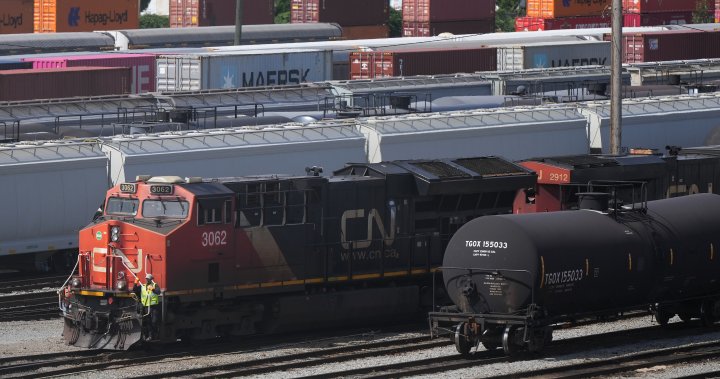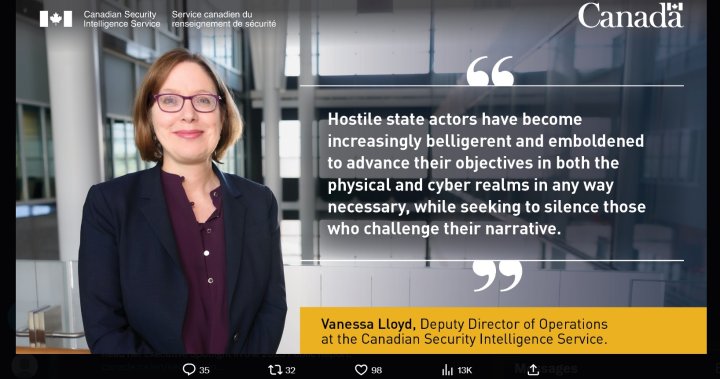Labour Minister Steve MacKinnon is heading to Montreal on Tuesday and Calgary on Wednesday to meet with stakeholders as a railway strike and lockout loom across the country, a spokesperson from MacKinnon’s office told Global News on Tuesday.
Freight trains across Canada could come to a grinding halt as soon as Thursday with roughly 9,000 railway employees nearing a looming strike or lockout date.
“Minister MacKinnon will be in Montreal today and Calgary on Wednesday to meet with the parties and federal mediators and urge CN (Canadian National) Rail, CPKC (Canadian Pacific Kansas City Ltd.) and Teamsters to fulfill their responsibility to Canadians, reach agreements at the bargaining table, and prevent a full work stoppage,” a spokesperson for MacKinnon said Tuesday.

The union representing thousands of workers at Canadian Pacific Kansas City Ltd. says it has served a 72-hour strike notice on the railway.
The Teamsters Canada Rail Conference issued a news release saying that unless the parties reach a last-minute agreement, workers will be off the job as of 12:01 a.m. Eastern time Thursday.
Not long after the union’s statement, CN Rail issued a notice that it intends to lock workers out at that same time unless an agreement or binding arbitration is achieved.

“CN must continue with the progressive and planned shutdown of its network, as we remain under the threat of an unpredictable strike notice. This planned shut down helps to ensure the safety of the communities in which we operate and the safety of our customers’ goods, and to optimize the network’s recovery following a labour disruption,” CN said in a statement Sunday.

Get breaking National news
For news impacting Canada and around the world, sign up for breaking news alerts delivered directly to you when they happen.
Earlier this month, CPKC said in a statement that it would lock out workers on Aug. 22 as well. The railway has not issued a statement since Sunday’s strike notice.

MacKinnon’s visit to Montreal and Calgary comes as industry groups have called on the federal government to end the shutdown through binding arbitration.
Barry Prentice, director of the transport institute at the University of Manitoba’s Asper School of Business, said it was unlikely that the government would allow the strike to go on for too long.
“I don’t think the government will have any hesitation to recall Parliament and to pass back-to-work legislation,” he said.
Prentice added that if that does happen, all parties could go into binding arbitration within seven to 10 days of the legislation.
“This has been the pattern we’ve now seen several times, and it’s what most of us would expect to see happen,” he said.
However, the federal Liberals need the support of at least one other party to pass legislation, and their current supply-and-confidence agreement partners in the NDP have urged Ottawa not to use binding arbitration, saying it ” would take away the unions’ power to negotiate for their workers.”

The union, however, said it would prefer to engage in “good faith negotiations” with the railways rather than under the “threat of binding arbitration.”
“Binding arbitration is never the right approach. First off, this would allow the company to get concessions that they could not otherwise get through good-faith negotiations,” TCRC spokesperson Christopher Monette said.
He said with binding arbitration, the problems would just “end up snowballing down the road towards the next round of negotiations, creating further supply chain risks and further instability.”
— with files from The Canadian Press
© 2024 Global News, a division of Corus Entertainment Inc.





